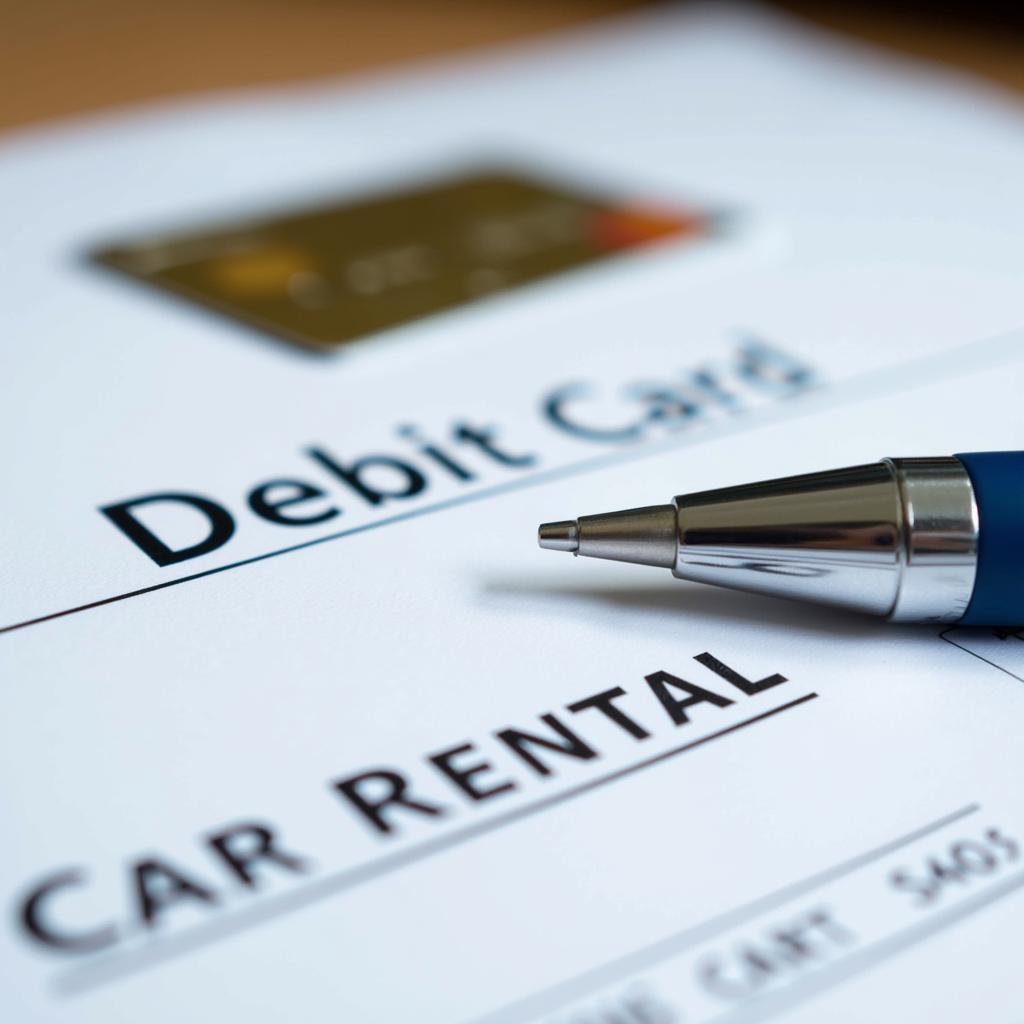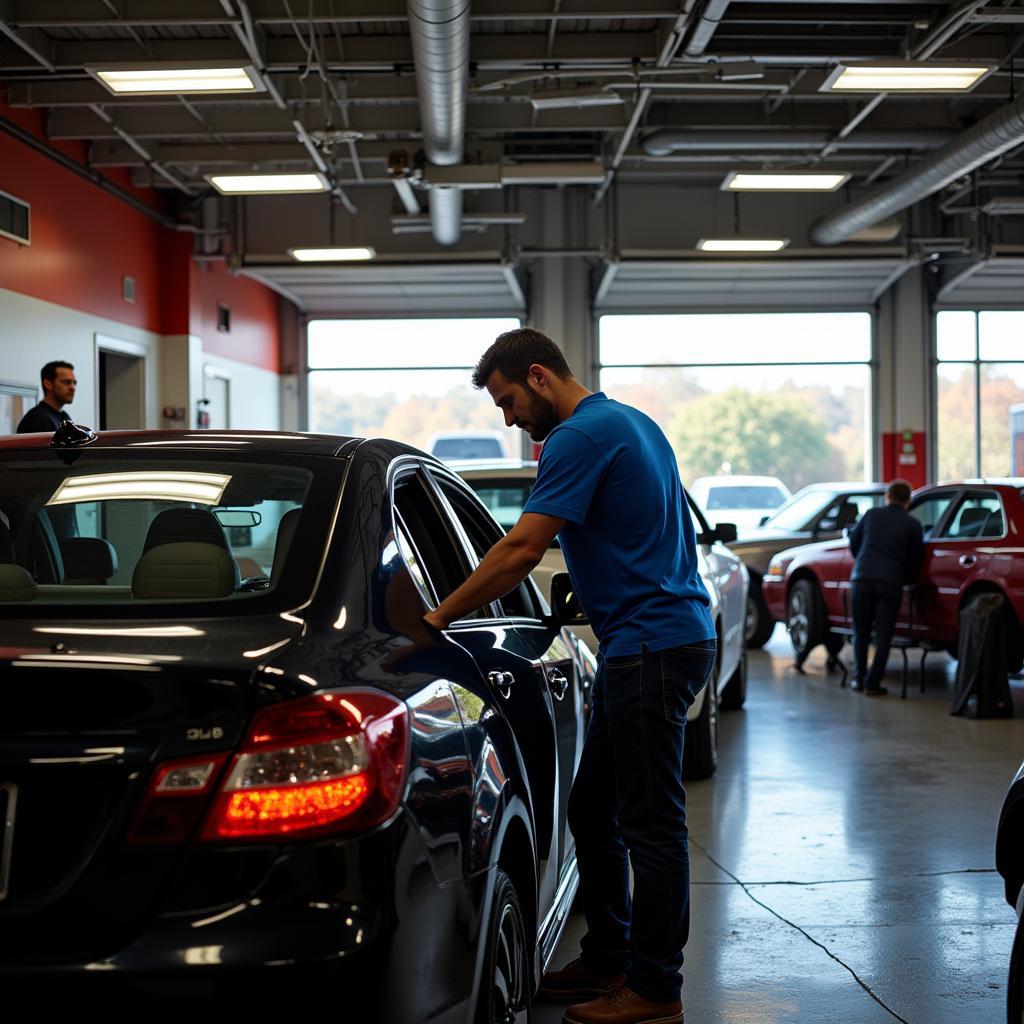What Do They Do for a Car Service? A Comprehensive Guide
When you take your car in for a service, it can feel like a black box. You hand over your keys and hope for the best. But understanding what actually happens during a car service can save you time, money, and unnecessary headaches down the road. This guide will demystify the process, explaining everything that typically happens during a car service.
What Does a Car Service Include?
A car service is more than just an oil change. It’s a preventative maintenance routine designed to keep your vehicle running smoothly and identify potential problems before they become major issues. While the specifics can vary depending on your car’s make, model, age, mileage, and the specific service package you choose, here are the core elements you can expect:
1. Oil and Filter Change
This is the cornerstone of any car service. The engine oil lubricates moving parts, reduces friction, and helps cool the engine. Over time, this oil degrades, becoming less effective.
What they do: Mechanics drain the old oil, replace the oil filter, and refill the engine with fresh oil that meets your car manufacturer’s specifications.
2. Fluid Level Checks and Top-Ups
Your car relies on various fluids to function correctly, including coolant, brake fluid, power steering fluid, transmission fluid, and windshield washer fluid.
What they do: Technicians check the levels of these essential fluids and top them up as needed to ensure optimal performance and prevent potential damage.
3. Tire Inspection and Inflation
Tires are your car’s only point of contact with the road, making their condition crucial for safety and handling.
What they do: Mechanics inspect your tires for wear and tear, including tread depth, bulges, and punctures. They also check the tire pressure and inflate them to the recommended levels.
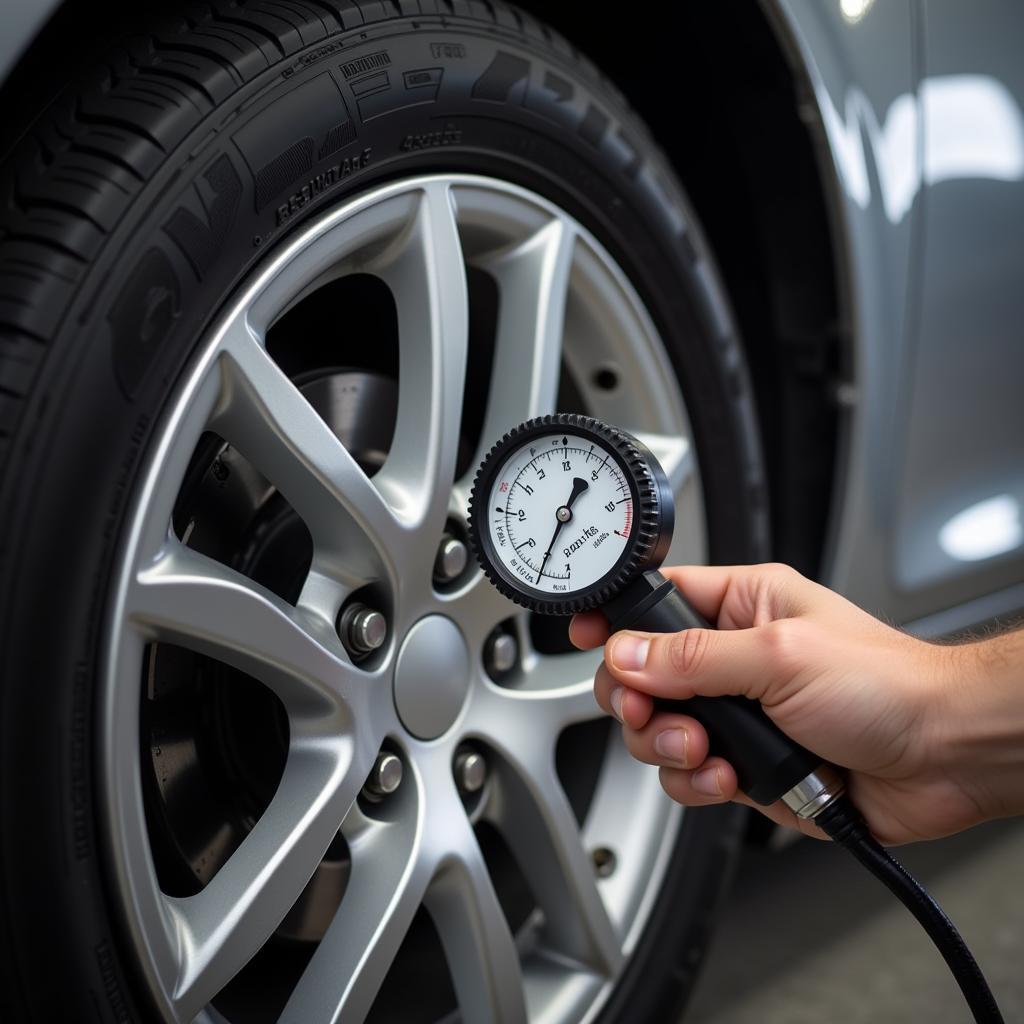 Mechanic Checking Tire Pressure
Mechanic Checking Tire Pressure
4. Brake Inspection
Your brakes are arguably the most critical safety feature in your car.
What they do: During a service, mechanics inspect your brake pads and discs (or drums) for wear, checking the brake fluid level and looking for any leaks in the system.
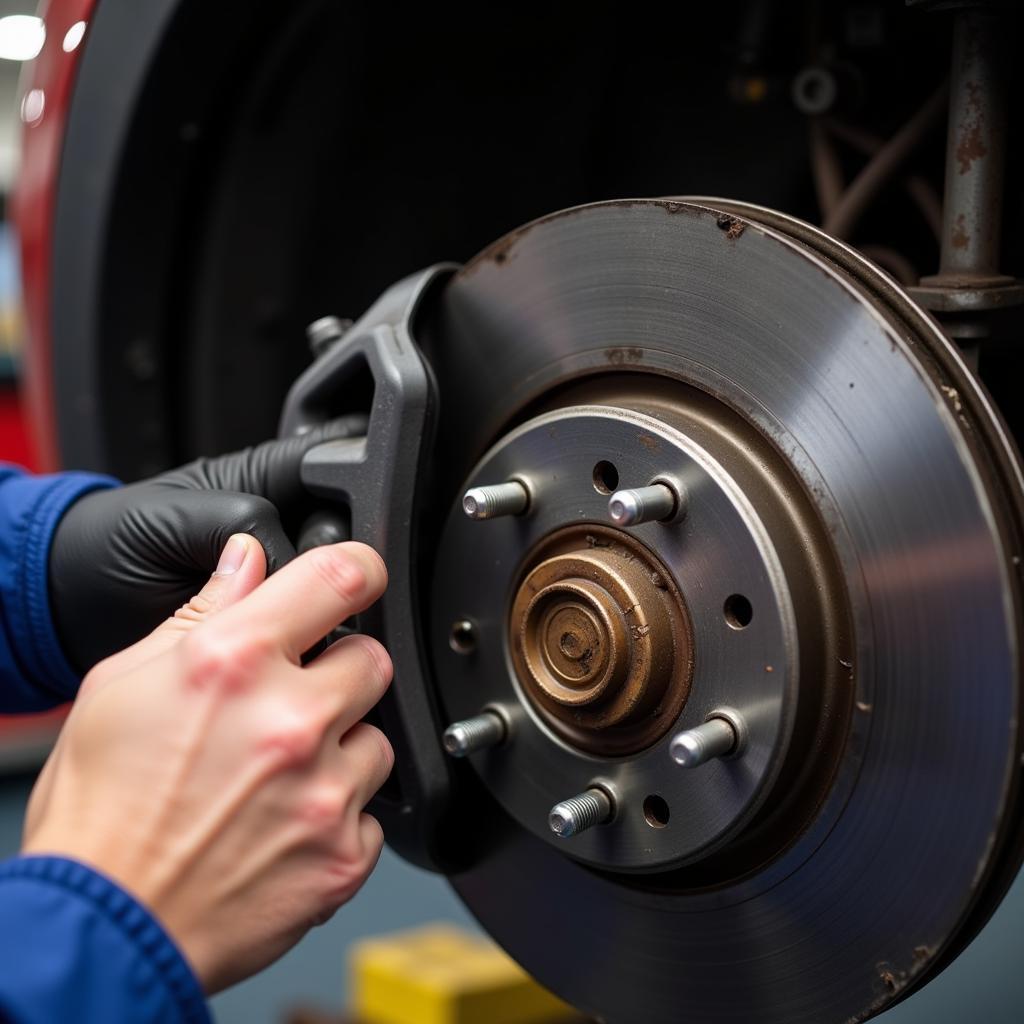 Close-Up of Brake Pad Inspection
Close-Up of Brake Pad Inspection
5. Battery Test
Your car battery provides the electrical current needed to start the engine and power various electrical components.
What they do: Technicians will test your battery’s voltage and cold cranking amps to ensure it’s in good working order. They may also clean the battery terminals to prevent corrosion.
6. Lights Check
Malfunctioning lights are not only a safety hazard but can also result in traffic fines.
What they do: Mechanics will inspect all exterior lights, including headlights, taillights, brake lights, turn signals, and hazard lights, to make sure they are working correctly.
7. Air Filter Replacement
Your engine needs a constant supply of air to function correctly. The air filter prevents dust, dirt, and debris from entering the engine and causing damage.
What they do: Technicians will inspect your air filter and replace it if it’s dirty or clogged.
8. Visual Inspection
Beyond these specific checks, a car service also involves a thorough visual inspection of your vehicle.
What they do: Mechanics look for any signs of damage, wear and tear, leaks, or potential problems that might require attention. This includes inspecting belts, hoses, the exhaust system, suspension components, and more.
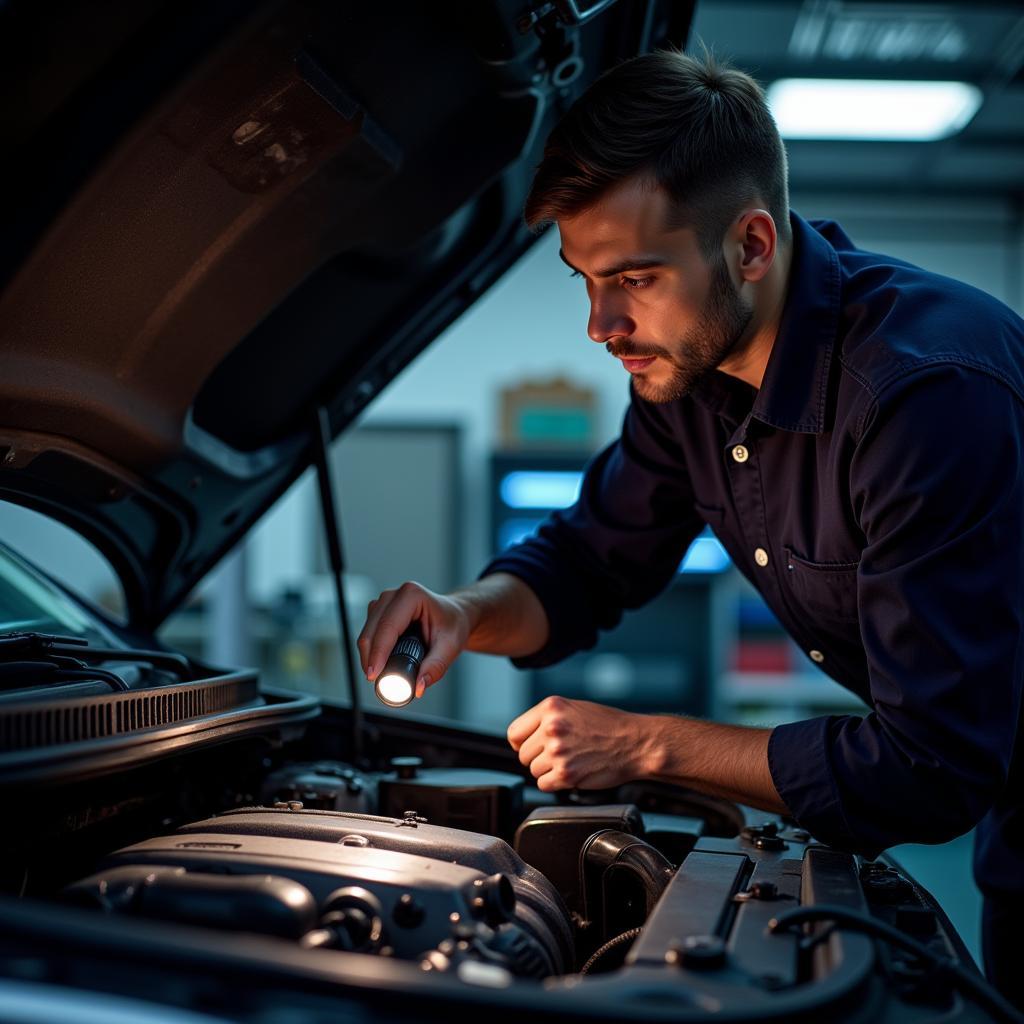 Mechanic Performing Under-the-Hood Inspection
Mechanic Performing Under-the-Hood Inspection
What to Expect After a Car Service
After the service, you should receive a written report detailing the work carried out, any parts replaced, and any advisories for future attention. Don’t hesitate to ask the mechanic to explain anything you don’t understand.
FAQs about Car Servicing
Q: How often should I get my car serviced?
A: Refer to your owner’s manual for specific recommendations. Generally, most manufacturers recommend a full service every 12,000 miles or 12 months, whichever comes first.
Q: What’s the difference between a car service and an MOT test?
A: A car service is preventative maintenance, while an MOT test is a legal requirement to ensure your vehicle meets minimum safety and environmental standards.
Q: Can I service my own car?
A: While basic tasks like checking fluid levels are manageable, car servicing often requires specialized tools, knowledge, and experience. It’s generally recommended to have your car serviced by a qualified mechanic.
Need More Car Service Information?
- What do they check when you get your car serviced: Dive deeper into the detailed checks performed during a car service.
- Which rental car services accept debit cards: Planning a trip? Learn about rental car services that accept debit cards.
Regular car servicing is an investment in the longevity, reliability, and safety of your vehicle. By understanding “what they do for a car service,” you can approach the process with confidence and ensure your car stays in top condition for miles to come.
Need help with car diagnostics or repairs? Contact our team 24/7 via WhatsApp: +1(641)206-8880 or Email: [email protected]. We’re here to help!
